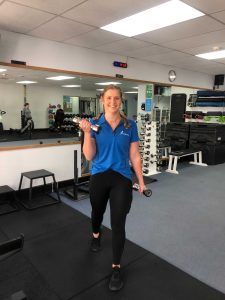Autism Spectrum Disorder and NDIS Exercise Physiology
Today, Longevity Exercise Physiology Drummoyne, Edgecliff, Marrickville, Bella Vista, Randwick, Pymble, Balmain, Neutral Bay, Coburg – Melbourne, and Barrie, Ontario – Canada discuss Autism Spectrum Disorder (ASD), the National Disability Insurance Scheme (NDIS) and Exercise Physiology.
Autism spectrum disorder is a developmental disorder that affects communication, behaviour, and a person’s ability to interact and socialise with the world around them. Autism has wide-ranging levels of severity and varying characteristics.
The National Disability Insurance Scheme (NDIS) is Australia’s first national scheme for people with a disability. The NDIS provides funding for support and services for Australians aged under 65, who have permanent and significant disability to build skills and capacity for community and employment participation.

Some quick facts regarding NDIS:
- NDIS provides funding and support for individuals with autism spectrum disorder (ASD).
- NDIS allows services for exercise and physical activity via Accredited Exercise Physiologists (AEP’s).
- Longevity’s Accredited Exercise Physiologists are all registered NDIS providers.


What are the NDIS categories for Exercise Physiology?
- Improve health and wellbeing
- Improve daily living
“Exercise reduces the risk of obesity, diabetes, and heart disease for those living with ASD.”
Longevity AEP’s have thousands of hours experience servicing NDIS clients over multiple years to help optimise their health and wellbeing, build capacity, and achieve goals. Longevity AEP’s design and deliver safe and effective exercise prescription specifically tailored to each individuals needs to improve health and wellbeing and improve daily living.
Exercise provides various benefits to individuals with ASD. These include improving:
- Motor skills and coordination, such as walking, running, jumping, catching
- Skill-related fitness,
- Social skills/social functioning/communication,
- Cardiovascular health
- Muscular strength and endurance,
- Bone strength,
- Balance and mobility,
- Independence and enhanced function and performance in daily tasks and activities
Exercise reduces the risk of obesity, diabetes, and heart disease for those with ASD. Exercise can regulate emotions, improve attention, and reduce repetitive behaviours. In addition, exercise can decrease the frequency of common behaviours such as body rocking, head-nodding, toe walking and object-tapping.

Longevity AEP’s can help those with ASD and various other conditions supported by NDIS, such as:
- Multiple sclerosis
- Parkinson’s disease
- Traumatic brain injury
- Spinal cord injury
Our practitioners offer the highest quality services in exercise professions to optimise client overall health and wellbeing long-term.
If you or someone you know has Autism Spectrum Disorder and/or is on the NDIS program and is interested in exercise, Longevity Exercise Physiologists are here to help!
Call Longevity Exercise Physiology Drummoyne, Edgecliff, Marrickville, Bella Vista, Randwick, Pymble, Balmain, Neutral Bay, Coburg – Melbourne, and Barrie, Ontario – Canada on 1300 964 002 to enquire today!
Written By Matt Skelly
